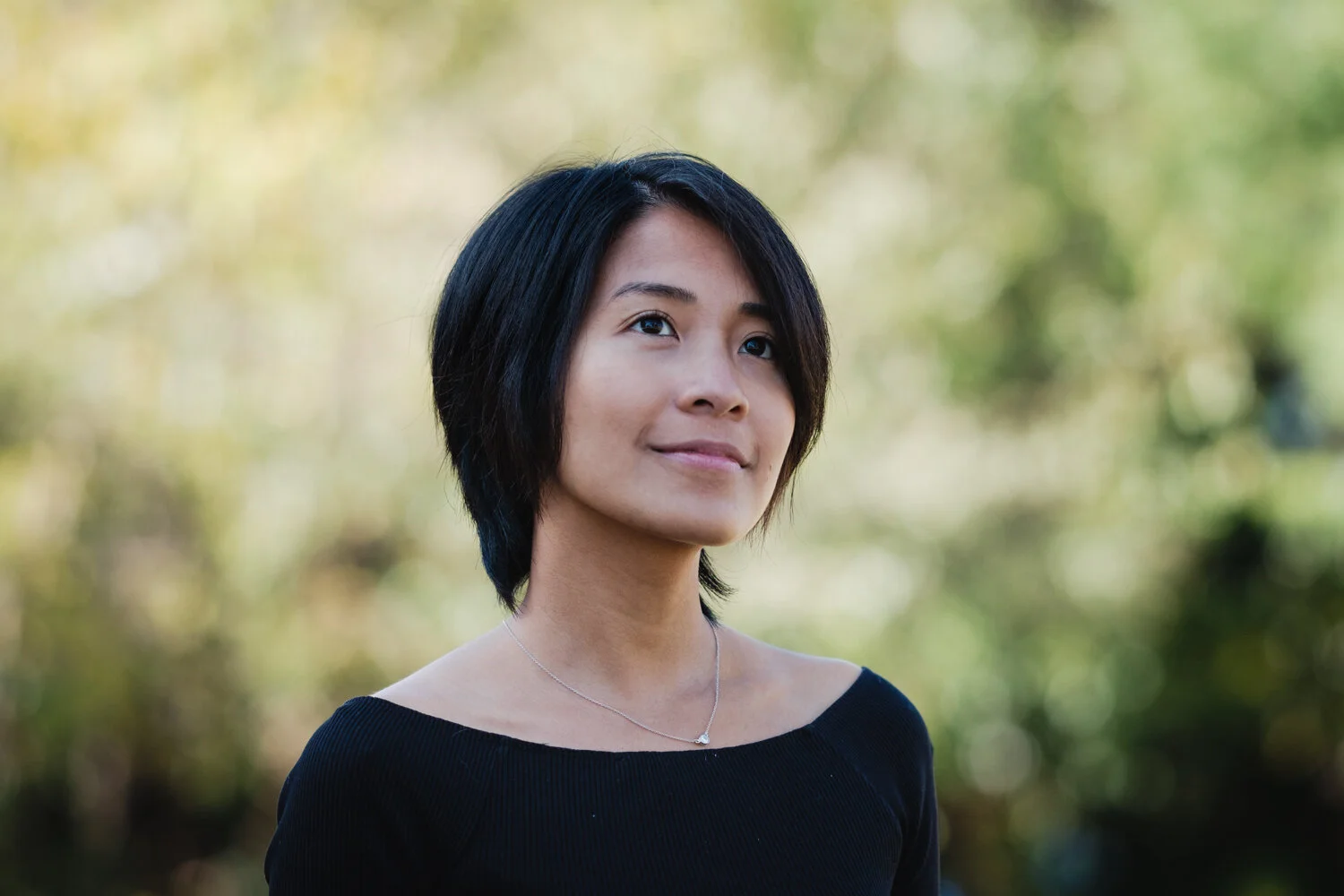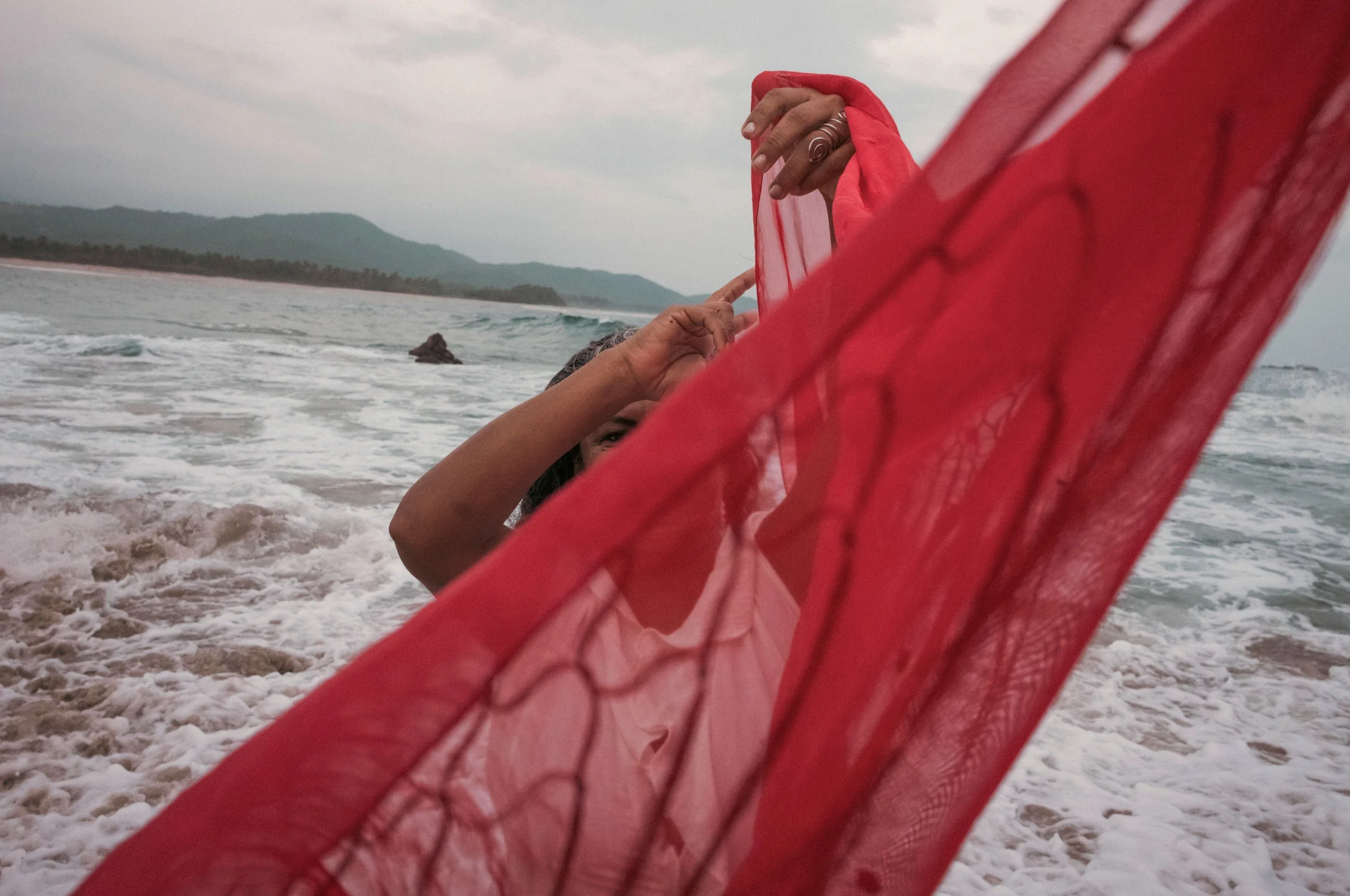Rosem Morton moved to the United States of America from the Philippines, where she attended nursing school. While working a part-time job and studying, Rosem decided to pursue her interest in photography. She saved up enough money and purchased her first camera.
“Everybody thought I was crazy and should continue on being a nurse. So I did. I've been a nurse for almost eight years now. Then, two and a half years ago, I wanted a change. I thought I should do something with photography. Once I learned you could do storytelling through photography, I wanted to figure out how to do that,” says Morton.
Before long, Rosem flipped the script and turned the camera on herself. "I ended up doing this project on myself on sexual assault and surviving trauma. That put me on the trajectory of where I am now, pursuing health and trauma stories," says Morton. Unsure of how the project would unfold or what the final product would look like, Rosem began cultivating photos that reflected how she felt. “I started off taking sad photos, that's how I felt. I took those images for a really long time and accumulated hundreds and hundreds of photos. I started to feel it was a good outlet for me. The work transformed itself in a way,” says Morton.
After sharing her work, Rosem was contacted by other survivors. This led her to start the project "Dear Survivor." Morton says, “It's a collaborative project. I spend time with a survivor, and we create art together—whatever that means for them. It could be writing, cooking or painting. Then I pair it with an image of them or an image that resonates with me of where I think they are as a survivor, or who I think they are.”
Crafting stories around trauma has helped Rosem become more compassionate in her work. “I know what it's like to be in so much pain, have somebody there to ask you about those things and have that trauma on camera to show it to the world. It has offered me a different point of view when I tackle these issues and when I encounter people. I know what they're giving up to get their story out there. It has shaped me so much,” says Morton.
Being a nurse has given Rosem a unique perspective as a photojournalist, especially during times of uncertainty throughout the pandemic. Her autobiographical work has evolved to shed light on the ever-changing environment frontline healthcare workers face on a daily basis. "I've always turned the camera towards somebody else. Then being in discussion and working with editors, I realized I should tell my story in a first-person point of view, since it's unique. At the time, no health provider was telling their story of what it's like in the hospital. I decided to start this project, right as the hospital was transitioning to prepare for COVID-19,” says Morton.
Despite strict HIPAA (Health Insurance Portability and Accountability Act) rules, Rosem spoke to fellow healthcare workers and used her platform to share their stories. “It's hard to see and hear what's going on in the hospital right now,” says Morton. Documenting stories revolving around healthcare has been deeply reflective for Rosem, “I'm learning that I'm really passionate about health stories and health workers, because there's very little access in hospitals.”
As a creative, Rosem focuses on what the work is—not what it’s going to look like. She encourages aspiring and established storytellers to find what they're truly passionate about. “If you asked me a month ago, I wouldn't have known specifically that I wanted to focus on health and trauma. Sometimes it takes a few assignments to figure out what really moves you. In terms of COVID-19 assignments, I would say, focus on the topic you're passionate about. If you care about Indigenous groups, what's happening to those people right now with COVID-19? If you like farming, how have farmers been affected by COVID-19? It's affecting everybody right now, in every stage of life. What are the issues you care about? Who are the people you care about? I think your passion will resonate, and there are spaces for all of those stories,” says Morton.
With COVID-19 impacting global communities differently, it's important to think critically about how stories are conveyed and presented in certain areas of the world compared to others, especially during the pandemic. "One example is how we see black, brown and white bodies being portrayed. For all of the people who were suffering in Italy, there's so much compassion, humanity and dignity in how they were portrayed. Compare that to Ebola, which didn't even have the same death rate as COVID-19. It was the usual tropes of how brown and black bodies are portrayed. I hope that people are paying attention and that they're seeing the differences here. We can take images that still impact people with a lot of dignity,” says Morton.
As a storyteller, you bring a diverse and distinctive perspective to the work that's shaped by your own experiences. “At the same time, it's not a blank statement because people of colour can also view things through a white lens. They're just so used to seeing things that way. We should all keep challenging ourselves and asking. 'Am I doing this appropriately or not?' This is a great time in photography because there are a lot of movements out there that constantly challenge people's views."
No matter your journey, Rosem shares how "being true to yourself will go a long way. It's not just beneficial to you. It's beneficial to other people because you're able to form real relationships with your subjects and editors. You allow your vulnerability to come out and make the work you're really passionate about. Mental health and self-care are also important. You have to take care of yourself first to do this kind of work. I say that as a person who's not very good at that. But I hope that we will continue to try for ourselves. Because by helping yourself, you can continue to help others.”
To learn more about Rosem Morton, visit her website or follow her on Instagram @rosemmorton.











